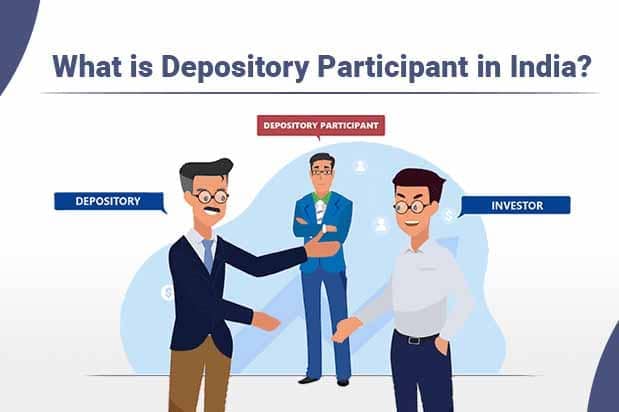Capital market – FII, QFI, FDI & P Notes
Points to Ponder in This Article – Learn how the foreigners invest in Indian equity market. What are the different types of instruments available to foreigners to invest in Indian markets.
Foreign Institutional Investor (FII)
A foreign individual seeking to invest in Indian stocks has to be registered as a sub-account of an FII. FII in turn has to be registered to SEBI on the behalf of such sub-account holder.
- India allows only wealthy foreign individuals or high networth individuals (HNIs); registered as a sub-account of a foreign institutional investor (FII) to invest directly in local equities
Qualified Foreign Investor (QFI)
- Foreign individual, group or foreign firm can directly invest in Indian stock-market like any normal Indian citizen, without requiring the sub-account with FII
- Must adhere to anti-money laundering and anti-terrorist financing guidelines as defined by the financial action task force (FATF), a multi-lateral body
- QFIs shall be allowed to invest through the SEBI-registered Depository Participant (DP)
- QFI is required to open one Demat account and a trading account with any of the qualified DP and make purchase and sale of equities (shares) through that DP only.
- QFIs can own up to 5% of Indian companies while their cumulative investments are capped at 10%.
- These limits are over and above the FII and NRI investment ceilings prescribed under the portfolio investment route for foreign investment in India
Also read: Capital Gains Tax, Transfer Pricing and GAAR
Depository
- Depository is like a bank locker where securities (shares) are held in electronic (dematerialized) form.
- In India, there are only two Depositories – National Securities Depositories Limited (NSDL) and Central Depository Services Limited (CDSL).
- NSDL > National Securities Depository Limited > Deals with National Stock Exchange (NSE)
- CSDL > Central Depository Services Limited > Deals with Bombay Stock Exchange (BSE)
Depository Participants (DP)
- DP’s are like bank branches where shares in physical (paper) form are deposited for converting them in electronic (Demat) form and emailing it to the Depositary.
- Examples of DP include ICICI, SBI, HDFC etc.

Arvind Mayaram Panel on FDI & FII (FPI)
| FDI | FII / FPI |
|
|
|
|
|
|

| FDI | FII / FPI |
|
|
|
|
P Notes: Offshore Derivative Instrument
- Financial instruments used by investors or hedge funds which are not registered with the SEBI to invest in Indian securities & stock market.
- FII such as HSBC registered with SEBI buy India-based securities or shares and then issue participatory notes to foreign investors.
- P-note owner doesn’t own the shares (as they’re in the DEMAT account of intermediary FII)
- P-Note owner doesn’t have voting rights in the shareholder meetings.
In general terms, Foreign institutional investors who do not wish to register with the SEBI but would like to take exposure in Indian securities also use participatory notes. Brokers buy or sell securities on behalf of their clients on their proprietary account and issue such notes in favour of such foreign investors.
Why Ban Participatory Notes (P Notes)
- As such the FII has to disclose P-note owner data to SEBI on quarterly basis (every 3 months).
- But often, within 3 months the P-notes would have changed many hands.
- Thus P-note investments are Anonymous. Hard to trace the owner.
- Can be used for money laundering and terror financing.
- Hot Money > Can leave Indian market very soon based on just one phone call from investor to FII.
- Hot money creates heavy rise or fall in share market, so even genuine investors’ money is lost.
- RBI’s Tarapore Committee > Recommended Banning P-notes for national security and to stabilize stock exchanges.
P-notes and CGT evasion
- Capital Gains tax is a direct tax levied on profit from sale of shares / bonds / gold etc.
- Even if P-note is sold 10 times to 10 different people, we cannot get CGT.
- We’ll get CGT only once, when the said p-note owner instructs the FII to sell the shares from its Indian DEMAT account / portfolio.
SEBI on P Notes
- FPI new classification based on Risk profile + KYC compliance
| CAT I |
|
| CAT II |
|
| CAT III |
|
The P Notes are a slap on the face of every citizen who is an investor. For a person to invest even in one share, several KYC forms have to be filled up, and PAN numbers and proof of address, etc., provided. For the P Notes investor, the system is totally silent on even elementary information. The FIIs issue PNs to funds/companies whose identity is not known to the Indian authorities.
For more updates, visit www.iasmania.com. Please share your thoughts and comments.
If you’re passionate about building a successful blogging website, check out this helpful guide at Coding Tag – How to Start a Successful Blog. It offers practical steps and expert tips to kickstart your blogging journey!







3 comments
AYYYYYYYYYYYYYYYYYYY mamasiata
Excellent and helpful article for capital market
Very helpful,thanks a ton.